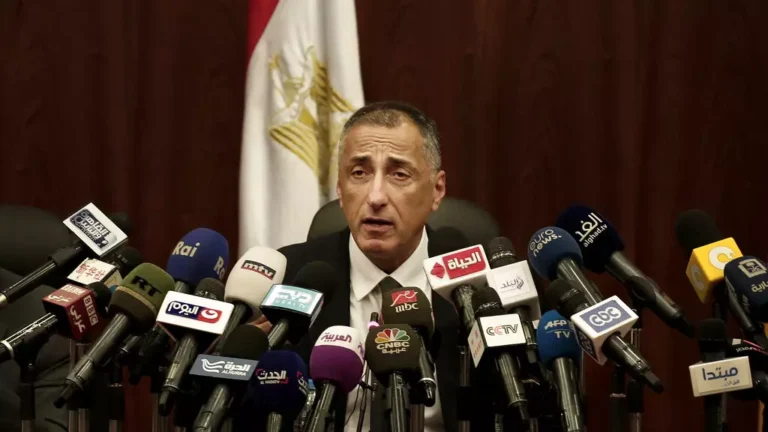The governor of Egypt’s central bank, Tarek Amer, has resigned more than a year before the end of his second term in office.
The move – which triggered a sell-off of government bonds – comes one day before the monetary policy committee is expected to raise interest rates.
Inflation stands at nearly 15%, three times what it was only a year ago.
President Abdel Fattah al-Sissi accepted the resignation of Mr. Amer, and then appointed him as presidential adviser, the daily Al-Ahram reported.
The brief statement offered no reasons for Amer’s resignation. He had been appointed as governor of the central bank in November 2015.
No replacement was immediately named.
Amer has been criticized over handling the country’s financial challenges which have seen the local currency slide against the U.S. dollar in recent months.
The pound has lost much of its value. The U.S. currency has been traded at over 19.20 pounds in Egypt’s banks, up from average of 15.6 pounds for $1 before the central bank’s decision to devalue the pound in March.
Inflation also increased in recent months partly because of the repercussions of Russia’s war in Ukraine. Egypt is the world’s largest wheat importer, and most of its imports come from Russia and Ukraine.
The annual inflation in Egypt reached 14.6% in July, increasing the burdens on consumers especially lower-income households and particularly for everyday necessities.
Amer’s resignation came as the government is in talks with the International Monetary Fund for a new loan to support its reform program and to help address challenges caused by the war in Europe.











